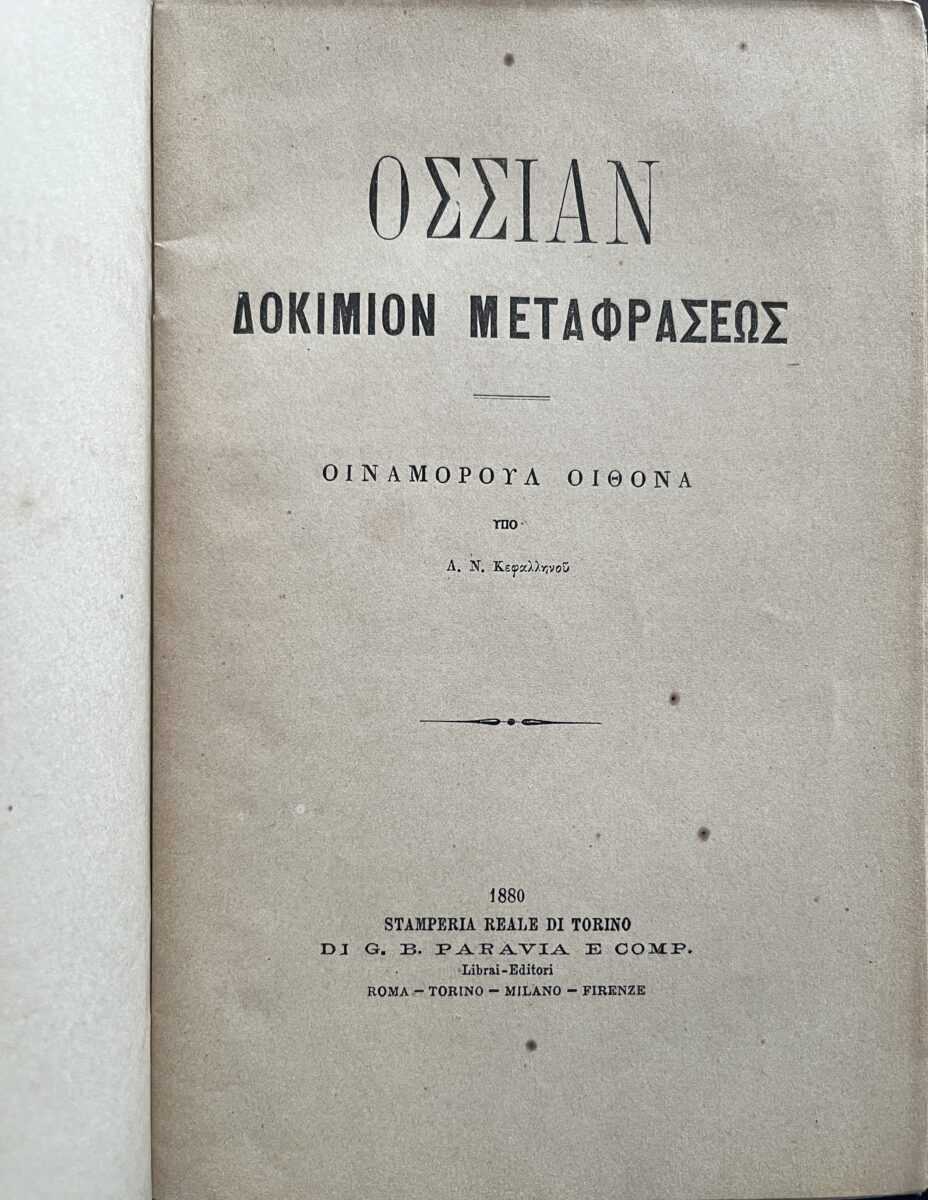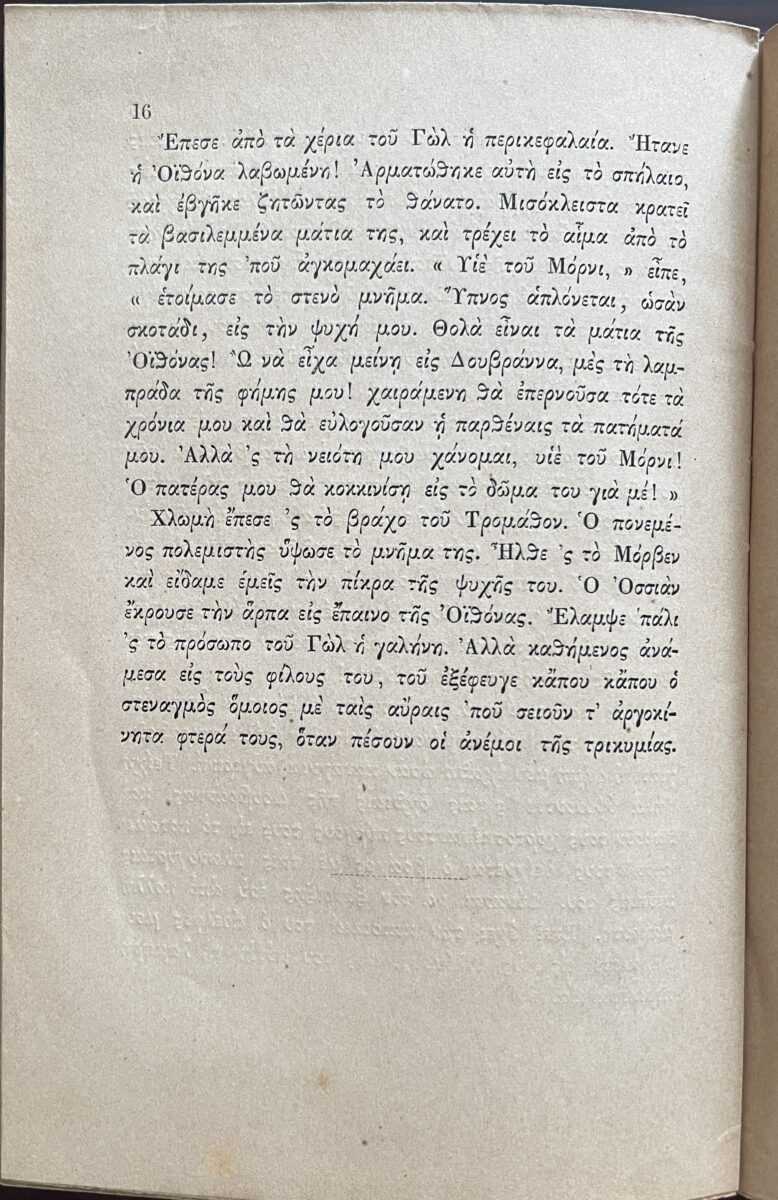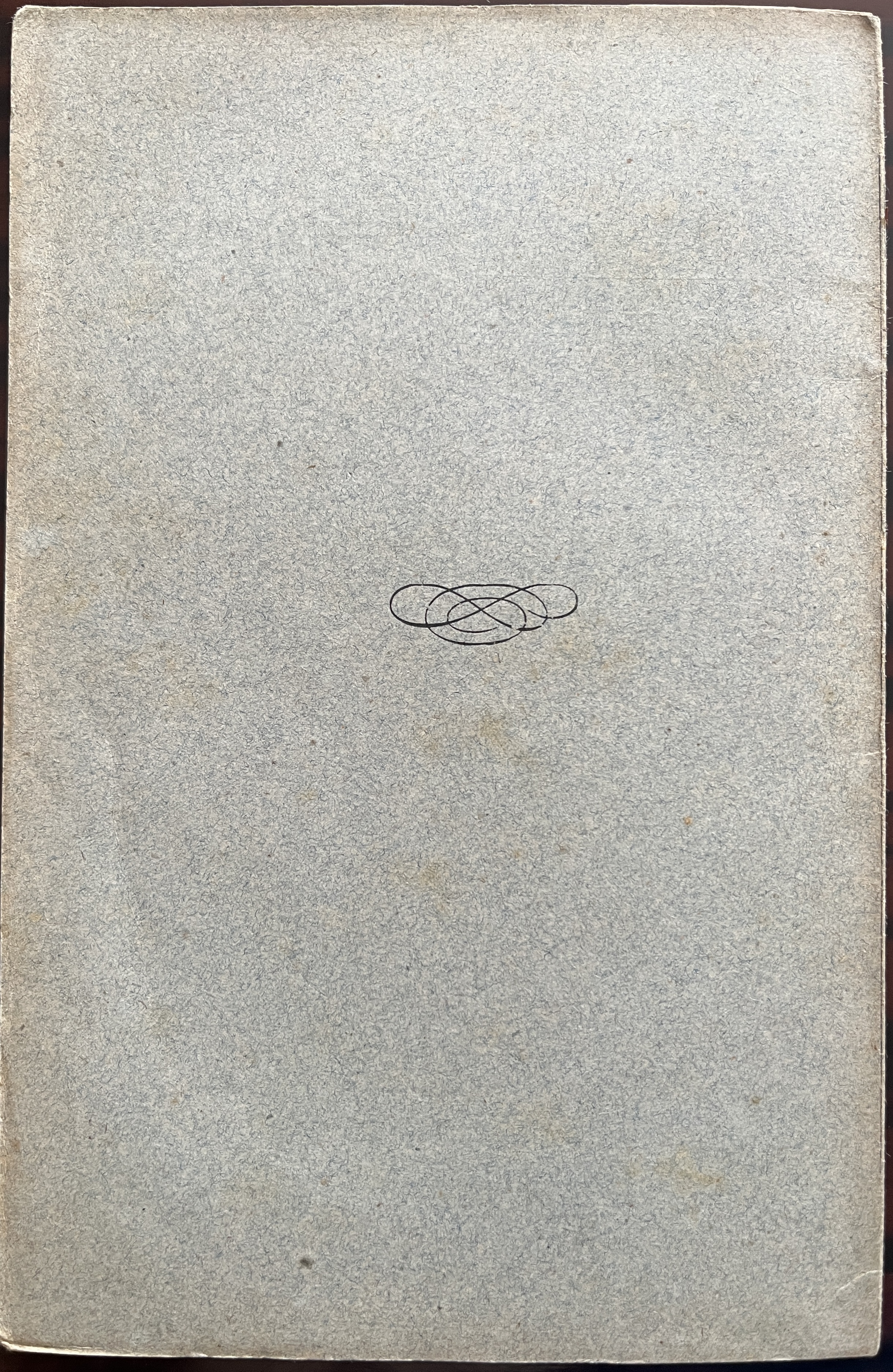Rare, 1880, Andreas Kefallinos, Greek Book, Ossian, Oithona, Gaelic Folklore
100.00€
Description
ΟΣΣΙΑΝ
ΔΟΚΙΜΙΟΝ ΜΕΤΑΦΡΑΣΕΩΣ
ΟΙΝΑΜΟΡΟΥΛ ΟΙΘΟΝΑ
ΥΠΟ
Α. Ν. Κεφαλληνού
OSSIAN
OINAMOROUL OITHONA
Translated by
A. N. Kefallinos
Published by G. P. Paravia inTurin in 1880
Original Paper Binding
16 Pages
12.5 cm x 19 cm
Andreas N. Kefallinos (1856-1943) was born in Corfu. There he attended and completed his basic education at the city’s gymnasium. He studied Indian philology in Munich and Florence, where he became a doctor of philosophy. In addition to his educational and political career, he was also involved in literature. He translated Gessler’s Idylls and the episodes Oinamorul and Oithona of Ossian into Greek. He also translated chapters from the Indian epic Ramayana. One of his most important theses was entitled The Greek Hetaerae in the Indian Drama, where he referred to the influence of Greek culture in India.
Ossian is a legendary bard from Scottish and Irish mythology, best known for being the supposed author of a cycle of epic poems that were published by the Scottish poet James Macpherson in the 18th century. These poems, known as the “Ossianic Poems”, were presented as translations of ancient Gaelic poetry. James Macpherson (1736–1796) claimed to have discovered and translated ancient Gaelic manuscripts containing the epic poetry of Ossian, a blind bard from the 3rd century.The two most famous works attributed to Ossian are “Fingal” (1762) and “Temora” (1763). The poems depict heroic tales of warriors, battles, and the melancholic nostalgia of a lost heroic age, resembling Homer’s epics in style. Even though Ossian himself is a semi-mythical figure, his legacy lives on through Macpherson’s work, which played a crucial role in popularizing Celtic heritage and folklore worldwide.
Additional information
| Languages | Greek |
|---|










